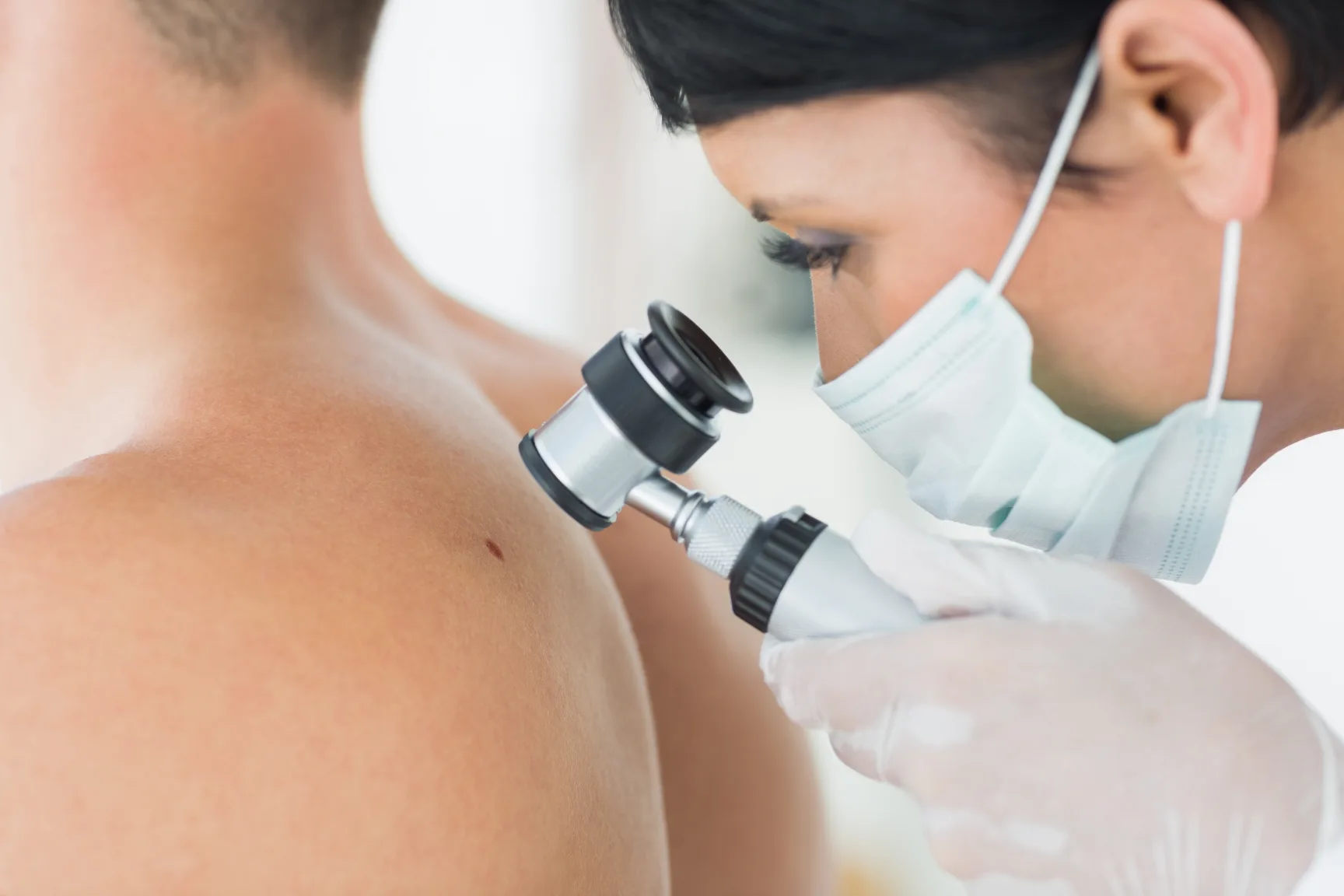
Medical Weight Loss Explained
A lot is said about medical weight loss but we are here to debunk the myths for you.
Dermatology > General dermatology

Find Out More


Our general dermatology services are designed to address a wide range of skin concerns with the utmost care and expertise.
Whether you are dealing with a persistent rash, an unsightly mole, or just need advice on maintaining your skin’s health, our dedicated team is here to help.

Some of the most common skin conditions include:
We offer a range of effective treatments tailored to address and alleviate various skin conditions, helping you manage symptoms and control flare-ups.
Our comprehensive approach includes not only topical treatments that target specific areas but also systemic medications that work from within to safeguard your skin’s health and overall well-being.
By combining these methods, we aim to provide thorough care and support for your skin, ensuring you achieve the best possible results.


Early detection is crucial for effectively managing skin cancer and improving treatment outcomes.
Therefore, we provide comprehensive skin cancer screenings designed to identify potential issues at their earliest stage and offer advanced treatments for a range of skin cancers, including basal cell carcinoma, squamous cell carcinoma, and melanoma.
Call us to make an appointment to discuss any concerns.
Use our online booking engine or book your test by giving us a call.
On the online booking engine select the “appointment type” you need.
You will be seen by one of our friendly doctors or trained clinicians.

Prepare a comprehensive medical history, noting any skin conditions, allergies, medications, and family history of skin diseases. Write down any specific skin issues or concerns you would like to discuss. If advised, avoid using topical treatments or skincare products that could affect the exam, such as retinoids or other medications. Choose clothing that allows easy access to the areas of your skin that will be examined.

During your visit, the dermatologist will carefully review your medical history and discuss any specific skin concerns you may have. They will perform a comprehensive examination of your skin, which might include visual inspection and palpation, and may ask you to change into a gown if needed. Take this opportunity to discuss any findings, potential diagnoses, and treatment options with the dermatologist. If necessary, the dermatologist may recommend a skin biopsy or other diagnostic tests, and will thoroughly explain the procedure and what you can expect.

The dermatologist will outline the next steps in your care. If a biopsy or additional tests were conducted, the dermatologist will contact you as soon as the results are received. Adhere to any care instructions provided, including how to manage any wounds or areas of concern. If you have been prescribed medications or topical treatments, use them as directed.
Incorporated
in 1998
Experienced doctors & a professional team
Registration
not needed
Up-to-date with the latest treatments & testing
Strictly
confidential
Experienced doctors & a professional team
Affordable private
health care
Transparent fee structure with no hidden charges
We work with experienced consultants & healthcare professionals who have received positive feedback from our patients, and with whom we have established long-term relationships.
Latest Episode
Tune in to our podcast to explore the world of healthcare and learn from distinguished special guests. We cover everything from preventative measures to cutting-edge treatments so that you can stay informed and up-to-date on health-related things.

A lot is said about medical weight loss but we are here to debunk the myths for you.

Tourist in London and need a GP? Get fast, private care for illnesses, injuries, or lost medication. No registration needed.

With NHS appointments harder to access, many people are turning to private GPs for faster, more convenient care.
Subscribe for latest updates & news


From same-day private GP and blood test appointments to visa medicals, a sexual and reproductive health clinic, and preventative health screenings, we are here to help.
Contact Us
Accepted Insurance Companies






Please note that Walk-in Clinic is a private medical centre & not an NHS service. Harley Walk-in Clinic Ltd company registration no. 07472804